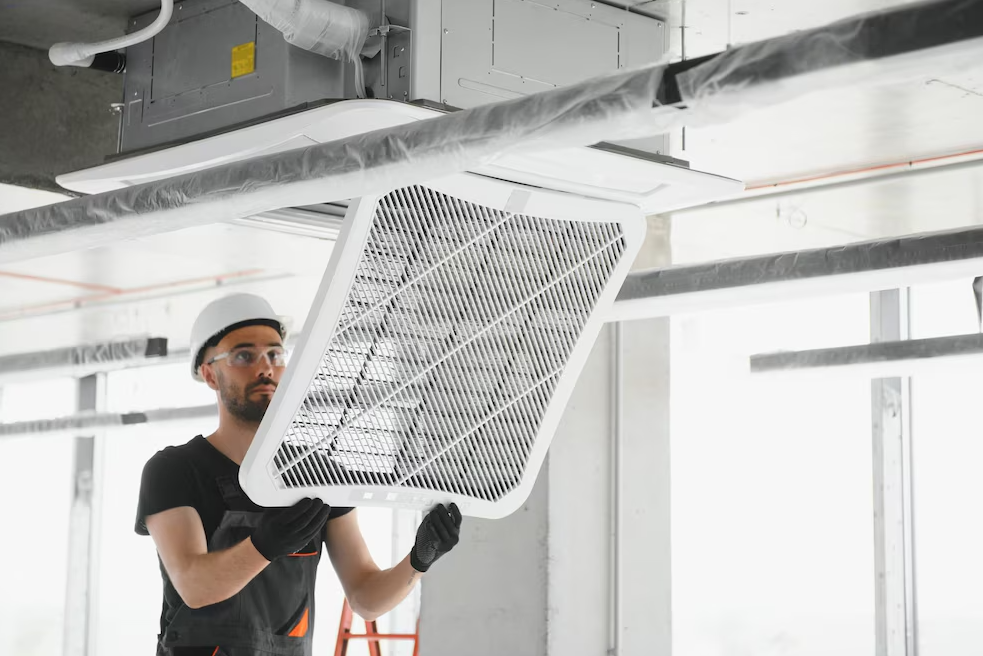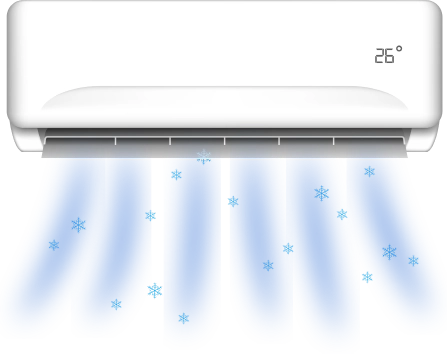When it comes to indoor comfort, few things are as essential as a reliable HVAC system. But while the acronym is commonly used, not everyone fully understands what is HVAC system, how it works, or why it’s so important—especially in places like California, where temperatures can vary widely.
If you’re a homeowner, business owner, or simply curious about the technology behind heating and cooling, this guide is for you. In this comprehensive post, we’ll explain what an HVAC system is, break down its components, show how it works, explore its benefits, and share some practical tips for maintenance.
What Does HVAC Stand For?
HVAC stands for Heating, Ventilation, and Air Conditioning. It refers to the technology and systems used to regulate indoor temperature, humidity, and air quality. HVAC systems are found in residential homes, commercial buildings, offices, and even industrial settings.
At its core, an HVAC system has three main goals:
- To heat indoor spaces during cold seasons
- To cool indoor spaces during warm seasons
- To ventilate, filtering and circulating air to ensure quality and comfort
What Is HVAC System Made Of?
Understanding what is HVAC system also means getting familiar with its main parts. While setups can vary depending on the type of building and local climate, most systems are made up of the following components:
1. Furnace or Heat Pump
The furnace is responsible for heating air and distributing it throughout the building. It can run on electricity, gas, or oil. In warmer regions, a heat pump may be used instead. Heat pumps can both heat and cool, making them a versatile option for homes in moderate climates.
2. Air Conditioner
This component cools down the indoor air by removing heat and humidity. It uses refrigerant and works in tandem with other parts like the evaporator coil and compressor.
3. Thermostat
Often overlooked, the thermostat is the brain of the HVAC system. It allows users to control the temperature manually or set automated schedules. Some advanced systems even offer smart thermostats, which learn user behavior and improve energy efficiency.
4. Ductwork
The network of ducts distributes air throughout the building. Properly designed and maintained ductwork is crucial for efficiency and indoor comfort.
5. Vents and Registers
These are the visible openings in walls, floors, or ceilings where air is delivered or returned to the HVAC system.
6. Filters
Filters trap dust, pollen, and other airborne particles, improving indoor air quality and protecting the HVAC components.

How Does an HVAC System Work?
Let’s break down how each component interacts to keep your indoor space comfortable:
- In the heating mode, the furnace generates warm air, which is blown through the ductwork into different rooms.
- In the cooling mode, the air conditioner removes heat from the indoor air using a refrigerant cycle, then circulates the cooled air.
- The ventilation system continuously brings in fresh air, expels stale air, and regulates humidity.
Some systems combine heating and cooling in a single unit, such as ductless mini-splits, which are ideal for homes without ductwork.
Different Types of HVAC Systems
There’s no one-size-fits-all solution when it comes to HVAC. Here are some of the most common types:
1. Split Systems
The most traditional type, split systems include separate components for heating and cooling—usually a furnace and an air conditioner.
2. Hybrid Systems
Hybrid HVAC systems use both a gas furnace and an electric heat pump. They automatically switch based on outdoor temperatures for better efficiency.
3. Ductless Mini-Splits
Perfect for homes without existing ductwork, mini-split systems offer flexibility and room-by-room temperature control.
4. Packaged Heating and Air Systems
These all-in-one systems are often found in homes without basements or crawl spaces, typically installed on the roof or exterior wall.
Why HVAC Systems Are Essential
HVAC systems are essential not only for temperature regulation but also for ensuring year-round comfort, energy efficiency, and healthier indoor environments. They function continuously to keep your space comfortable, whether in the heat of summer or the chill of winter, while also promoting better air quality and smarter energy use. Below are some of the key benefits that make HVAC systems indispensable:
Comfort Year-Round
Whether it’s a hot summer or a cold winter, HVAC systems keep your indoor environment just right by adjusting to seasonal temperature needs and maintaining a consistent climate.
Energy Efficiency
Modern HVAC systems are engineered to reduce energy consumption through advanced technologies and smart controls, which can lead to significant savings on utility bills.
Air Quality Improvement
Thanks to integrated filters and ventilation systems, HVAC units help trap dust, allergens, and pollutants, contributing to a cleaner and healthier indoor atmosphere.
Smart Control and Automation
Many current systems include smart thermostats that allow users to control settings remotely, set schedules, use voice commands, and monitor energy usage—adding convenience and optimizing performance.
How to Know When It’s Time to Repair or Replace Your HVAC System
Even the most reliable HVAC systems don’t last forever. Over time, wear and tear can compromise performance, efficiency, and indoor comfort. Identifying the early warning signs of malfunction is key to avoiding unexpected breakdowns and costly energy bills. If your system is making unusual noises, emitting strange odors, struggling to maintain a consistent temperature, or frequently cycling on and off, these are strong indicators that it’s time to schedule a professional inspection. Systems that are over 15 years old are also more likely to experience failures and may no longer meet current energy standards.
When evaluating whether to repair or replace your HVAC system, consider the following factors:
- Inconsistent room temperatures: Some areas are too hot while others remain cold.
- Higher energy bills without increased usage: A sign that your system is working harder than it should.
- Frequent breakdowns: Ongoing repairs can add up and may outweigh the cost of a new unit.
- Outdated components: Older systems may use phased-out refrigerants or lack compatibility with smart thermostats.
- Poor indoor air quality: Increased dust, humidity, or allergens may be a result of system inefficiency.
When to Call the Experts: JCL & Sons HVAC Is Here to Help
If your HVAC system is making strange noises, struggling to maintain a consistent temperature, or causing your energy bills to spike, these could be signs that it’s time for a repair—or even a full replacement. In Southern California, where climate conditions vary widely, choosing the right HVAC system means considering more than just performance. You need a solution tailored to your space, energy needs, and local weather patterns. That’s where JCL & Sons HVAC comes in. With deep experience serving areas like Anaheim, Costa Mesa, Irvine, and Long Beach, our team understands the specific demands of California homes and businesses. Whether you’re upgrading, installing, or unsure where to begin, contact us today for expert guidance and reliable service you can trust.



